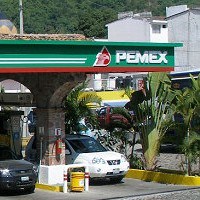At the beginning of the 1980s, governments controlled the energy sector in all the major Latin American countries. Over the next two decades, however, the combination of low energy prices and a lack of state capital to support exploration and production by national oil companies’ (NOCs) forced energy policy reforms in every country. These took the form of market-oriented policies emphasizing privatization, liberalization and fiscal discipline, known as the Washington Consensus. While the consensus prevailed, hydrocarbon rents went overwhelmingly to private firms, and the promised benefits of economic reforms turned out to be short-lived, if they materialized at all; the poor and indigenous suffered even more than prior to liberalization.
The resulting political backlash against the market has been understandable, if misplaced and counterproductive. The rise of Venezuelan President Hugo Chávez, for instance, is directly related to the fact that Venezuela’s state-owned oil company, PDVSA, succeeded in exploiting the nation’s oil, but did little to improve the life of the Venezuelan people -- 70 percent of whom, by some estimates, lived in poverty -- in whose name it operated.
Not every country rejected market reforms, however; Brazil, Peru and Colombia pursued them even further. As a result, contemporary Latin American states are arrayed along a continuum of energy policies between market-based incentives and state control. Countries have performed relatively better or worse along this continuum, depending upon their resource endowments and the specifics of government policy. The impact of these policies on citizens is not consistent: The country with the most state-controlled sector, Mexico, does not distribute wealth well; a country in the middle, Brazil, has been a model of sustainable redistribution and investment in social mobility; and the country with the most unstable policies, Venezuela, has undertaken significant redistribution of wealth, but in an opaque and noninstitutionalized fashion that generates concerns about its sustainability.

